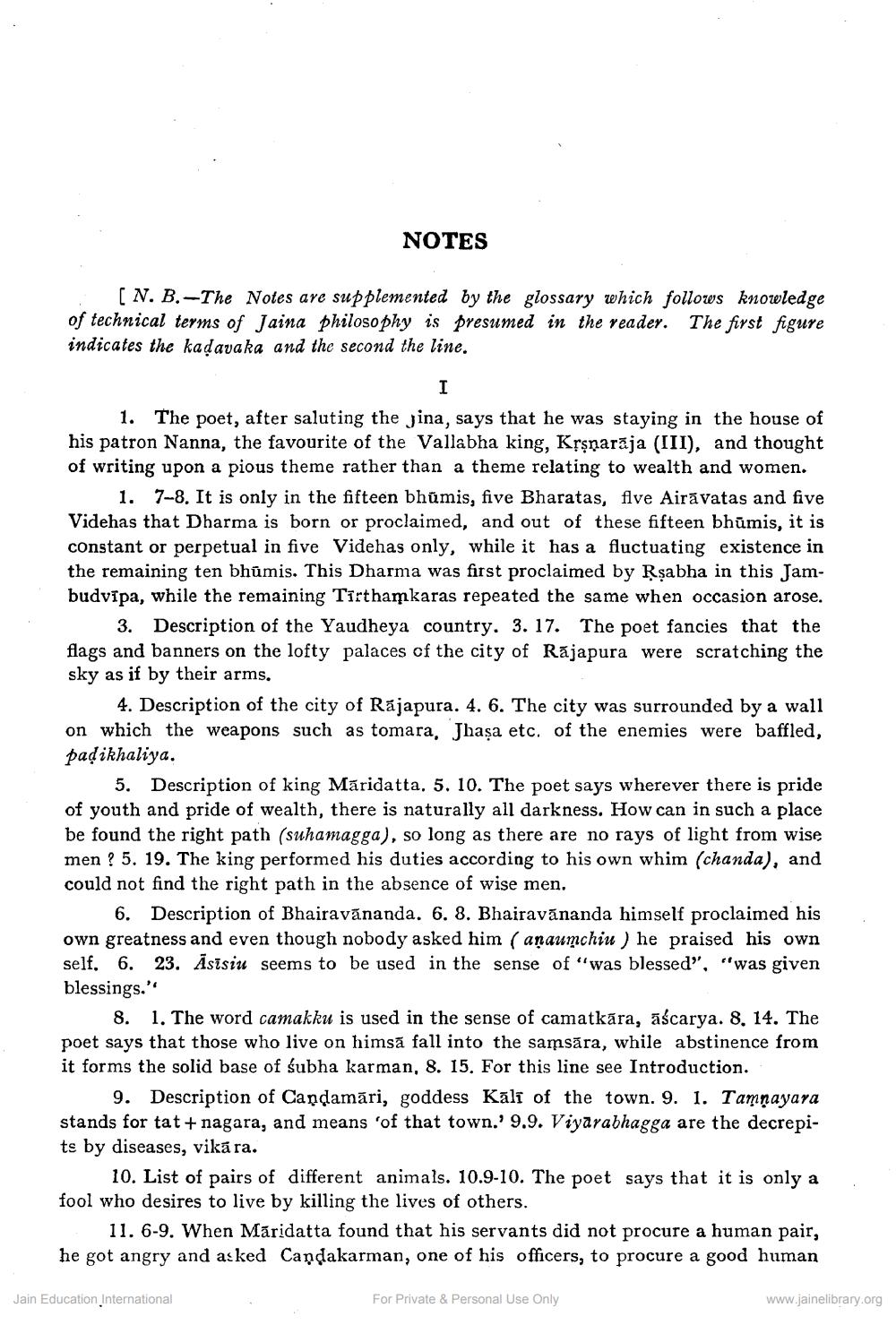________________
NOTES
[N. B.-The Notes are supplemented by the glossary which follows knowledge of technical terms of Jaina philosophy is presumed in the reader. The first figure indicates the kaḍavaka and the second the line.
I
1. The poet, after saluting the jina, says that he was staying in the house of his patron Nanna, the favourite of the Vallabha king, Kṛṣṇarāja (III), and thought of writing upon a pious theme rather than a theme relating to wealth and women.
1. 7-8. It is only in the fifteen bhumis, five Bharatas, five Airavatas and five Videhas that Dharma is born or proclaimed, and out of these fifteen bhūmis, it is constant or perpetual in five Videhas only, while it has a fluctuating existence in the remaining ten bhūmis. This Dharma was first proclaimed by Rṣabha in this Jambudvipa, while the remaining Tirthamkaras repeated the same when occasion arose.
3. Description of the Yaudheya country. 3. 17. The poet fancies that the flags and banners on the lofty palaces of the city of Rajapura were scratching the sky as if by their arms.
4. Description of the city of Rajapura. 4. 6. The city was surrounded by a wall on which the weapons such as tomara, Jhașa etc. of the enemies were baffled, padikhaliya.
5. Description of king Maridatta. 5. 10. The poet says wherever there is pride of youth and pride of wealth, there is naturally all darkness. How can in such a place be found the right path (suhamagga), so long as there are no rays of light from wise men? 5. 19. The king performed his duties according to his own whim (chanda), and could not find the right path in the absence of wise men.
6. Description of Bhairavananda. 6. 8. Bhairavananda himself proclaimed his own greatness and even though nobody asked him (anaumchiu) he praised his own self. 6. 23. Asisiu seems to be used in the sense of "was blessed", "was given blessings."
8. 1. The word camakku is used in the sense of camatkāra, aścarya. 8, 14. The poet says that those who live on himsã fall into the samsara, while abstinence from it forms the solid base of subha karman, 8. 15. For this line see Introduction.
9. Description of Candamari, goddess Kālī of the town. 9. 1. Tamnayara stands for tat + nagara, and means 'of that town.' 9.9. Viyarabhagga are the decrepits by diseases, vikara.
10. List of pairs of different animals. 10.9-10. The poet says that it is only a fool who desires to live by killing the lives of others.
11.6-9. When Maridatta found that his servants did not procure a human pair, he got angry and asked Candakarman, one of his officers, to procure a good human
For Private & Personal Use Only
Jain Education International
www.jainelibrary.org




